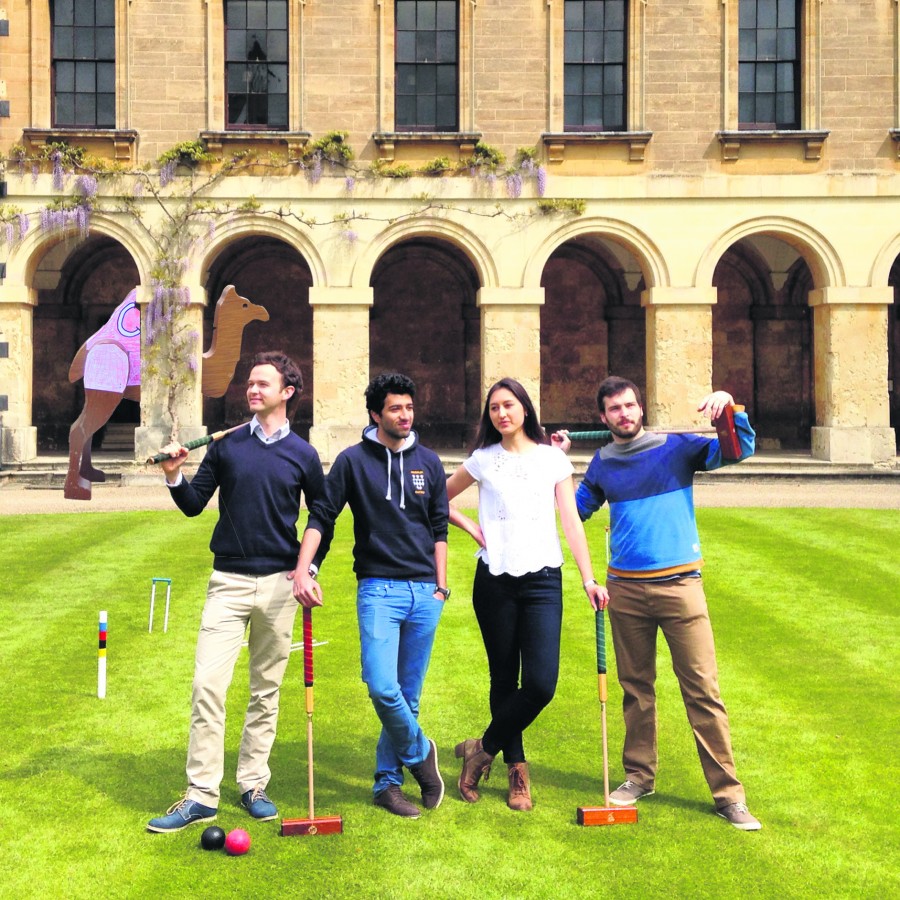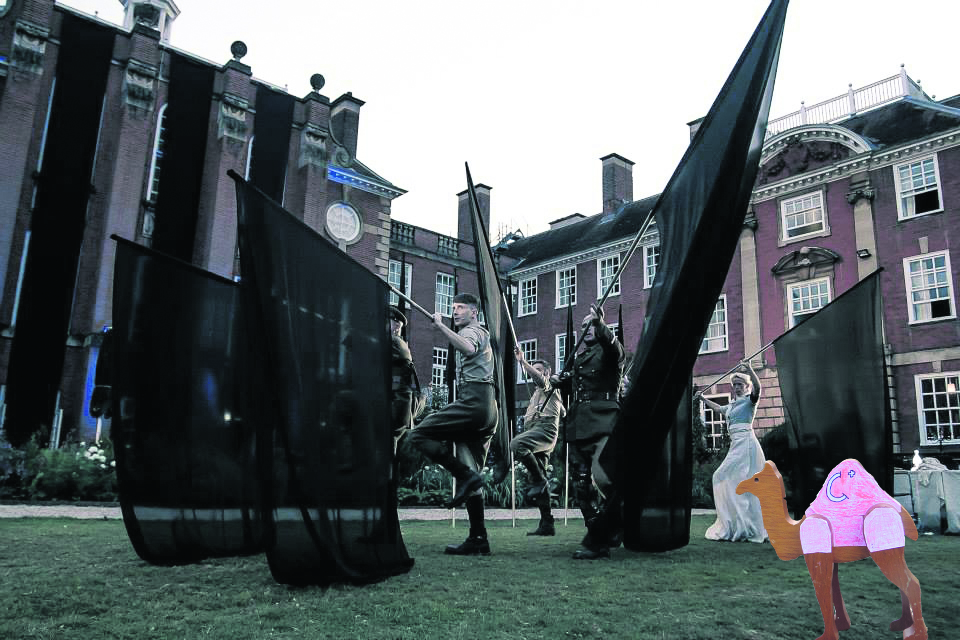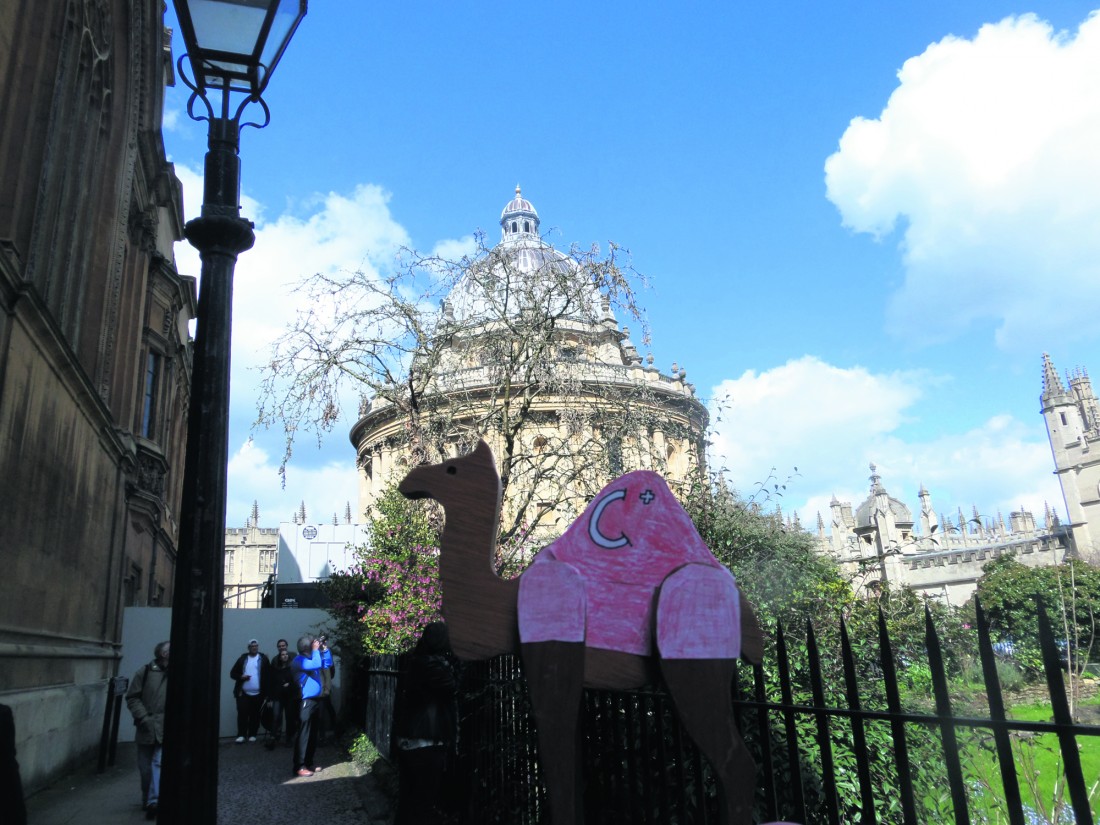Yes: Simran Uppal
At its heart, art is a means of communication, even if it is one that cannot be analysed in the same way as, say, writing a geography textbook. But this is as much a strength as it is a weakness: one of the reasons we even distinguish art (painting, novel-writing, dance, whatever) from other fields is because it has a special potential for communication, different and in some ways more penetrating than the sort associated with government reports, opinion pieces or restaurant complaint forms.
Think of the difference between understanding something on an intellectual level and really getting it, the difference between reading a utilitarian critique of the fur industry and actually standing in a fur factory looking at soft, cuddly bunnies trapped in miniscule cages with gashes on their paws from the wire flooring.
But activism needs fast, wide methods of communications. Protest is not protest if it’s not public, and effective protest is that which spreads its message of objection or solidarity quickly, broadly and powerfully. Art is an essential part of this. There is absolutely no point in this whole country having a profound academic understanding of Fanon, Said and Spivak if their post-colonial theory isn’t bolstered by genuine human understanding, and if they’re not then fired up with anger and drive to make change.
Other methods of protest can generate these sorts of reactions, intelligent compassion and productive anger and so on. Raising awareness of shocking statistics can generate a strong response, marches and strikes communicate passion and gravity like nothing else, and a speech or piece of newspaper prose can definitely connect with you on a much deeper level than just dispassionate scientific comprehension.
But art can be different. Not only is it easily transported around the world, it has an unrivalled ability to make us reflect, to make us feel other people’s pain and to understand the human side of issues in a profound, potent way. Earthquakes in Sichuan province: poorly built schools cause thousands of casualties. Or, nine thousand colourful children’s backpacks cover the wall of a building, spelling out a quote from a little girl’s mother: ‘She lived happily for seven years in this world.’
Even if you don’t see the power of this particular work – and there are thousands of other high-profile activist artists out there – some organisations clearly do. The Chinese police beat Ai Weiwei so brutally during his preparation for the show that contained this piece that he had to be rushed to hospital for emergency brain surgery.
Art sends messages round the world in ways nothing else can. It can liberate the mind of the maker as much as it provokes thought or reflection or radical sudden change in the mind of the viewer, and both of these are key parts of effective protest. Social change is inextricable from changing the way people see the world. Travis Alabanza is a student at KCL and, in their own words, “a Black, Queer, non-binary performance poet.” One poem reminds me of Beyonce’s video for ‘Haunted’, but instead of elegant but generic love lyrics you have painful, sharp language about the forced exposedness and vulnerability of trans bodies. This is how we show people like Germaine Greer how ignorant they are being: heaven knows rational argument hasn’t worked.
Activism needs art. It sounds like waffle but it fuels people, it reinforces their drive. Gandhi used to read lines from Shelley’s famous ‘Masque of Anarchy’ to crowds of his supporters, a deeply moving call to arms. The poem is an incredibly compelling image of the power of nonviolent resistance, viciously gory but unrepentantly hopeful. Think of one of those scenes from the Richard Attenborough biopic, long lines of calm, determined Indian men and women standing, being beaten brutally over and over with batons and nightsticks but lasting it out. ‘Rise like Lions after slumber / In unvanquishable number – / Shake your chains to earth like dew / Which in sleep had fallen on you – / Ye are many – they are few.’
Student protests are often at the advance guard of social change and constantly under attack from the right-wing press – just think of the extent to which RMF Oxford was misrepresented and generally vilified last term. Activists and protestors need inspiration and support. You need them to strengthen determination and emotional resolve.
Art gives people fire, it communicates quickly and powerfully and it connects people to people and people to ideas like absolutely nothing else. Student protest, like any other sort of protest, needs art.
No: Richard Birch
There is little doubt that art and politics are inextricably intertwined. The question is, does the presence of one in the other aid or hinder its success? Is it like the giant redwoods, where the presence of the tree next to it pushes each to become ever taller, or do art and protest jostle for the same light? The other question is that of pragmatics: is art an eff ective means of protest, or just an entertaining sideshow?
Each major art form has a diff erent history of political polemicism. Some, I would agree, have largely succeeded in marrying art and political protest; photography would be the most obvious example. Sebastiao Salgado, for one, used his position as a world leader in the field to forge his art in the light of conflict, poverty and the working man. For Salgado, the presence of politically trenchant issues in his art furthered the potency of that art, and so simultaneously gave wider exposure to the issues at hand, including the conditions facing Brazilian gold mine workers in 1986. Yet photography is, to me, an exception to the rule. True, the spirit of protest is carried well through the development of popular music, through the likes of Public Enemy, The Velvet Underground and John Lennon. Indeed, Lennon’s work only became uncensored in Cuba at the moment when the Cuban government thought Lennon’s song ‘Power to the People’ might be a useful tool – to show that even Western pop stars didn’t like the capitalist model. But did the song succeed as art? Hunter S. Thompson disparaged it as “Lennon’s protest song… ten years too late”. It was too propagandist to garner any true critical acclaim. In comparison, Public Enemy and The Velvet Underground may have attained great artistic success, but this came with a sense of conformity to the spirit of rebellion rather than a specifi cally polemical outlook; they are universal and eternal, rather than attached to any time, place and issue.
Film likewise has a mixed relationship with protest. In particular, the psychedelic anarchofeminist agenda of Vera Chytilova’s Daisies was and is to this day an eye-catching testimony to the creativity hiding behind the Iron Curtain. Yet this is, once again, a rare exception. Films that explicitly form a political worldview have rarely enjoyed critical or commercial success. Instead, the elusive ambiguity of films such as Apocalypse Now is favoured. Even the well received critique of the moral bankruptcy of the banking industry that was The Big Short could not get much more polemical than to say, “This was shit”, and then have a good post-modern laugh about it afterwards. This depoliticisation carries through to literature, with the mix of protest and literature not enjoying an illustrious past. Even in the work of Dickens (often held as a prime example of social criticism) the political outlook is always far more complicated than first appears. If the artist is too explicit in their protest, it damages the art in only leaving one interpretation.
Simran argues that “activism needs fast, wide methods of communication”. But as students, do any of these art forms provide this? Is it possible to use the art form to highlight the issue in a meaningful manner, while simultaneously getting the issue exposure? It is evident from practice what it is that gets these issues exposure, what it is that gets ‘the powers that be’ to pay attention and to discuss what the protesters have to say: marches and physical presence. These are the start, the key and the focus; politicised art is the addendum and the postscript. We only need to see the recent success of the Rhodes Must Fall movement in obtaining exposure. They didn’t get to where they are today through writing poems and releasing photo albums. They got there through marches and protests ‘out there’ – there in the world beyond the page or film reel. Though art has subsequently become a facet of the movement, what has thrust the movement into the limelight are the marches, public meetings and conferences. It is these which attracted the attention of the public and the establishment which they oppose.
Art is not how you get your voice heard on matters such as these. You’ve got to protest in person.



 The motion to disaffiliate follows the election of Malia Bouattia as President-elect of NUS, despite allegations of anti-Semitism. Leaders of Jewish Societies at 48 universities across the UK signed an open letter calling on her to answer questions including her comment declaring the University of Birmingham a “Zionist outpost”. Malia responded to the open letter claiming she only took issue with Zionist politics not Jewish faith. She defended herself against this, and other, allegations in a comment piece written for The Guardian.
The motion to disaffiliate follows the election of Malia Bouattia as President-elect of NUS, despite allegations of anti-Semitism. Leaders of Jewish Societies at 48 universities across the UK signed an open letter calling on her to answer questions including her comment declaring the University of Birmingham a “Zionist outpost”. Malia responded to the open letter claiming she only took issue with Zionist politics not Jewish faith. She defended herself against this, and other, allegations in a comment piece written for The Guardian.







